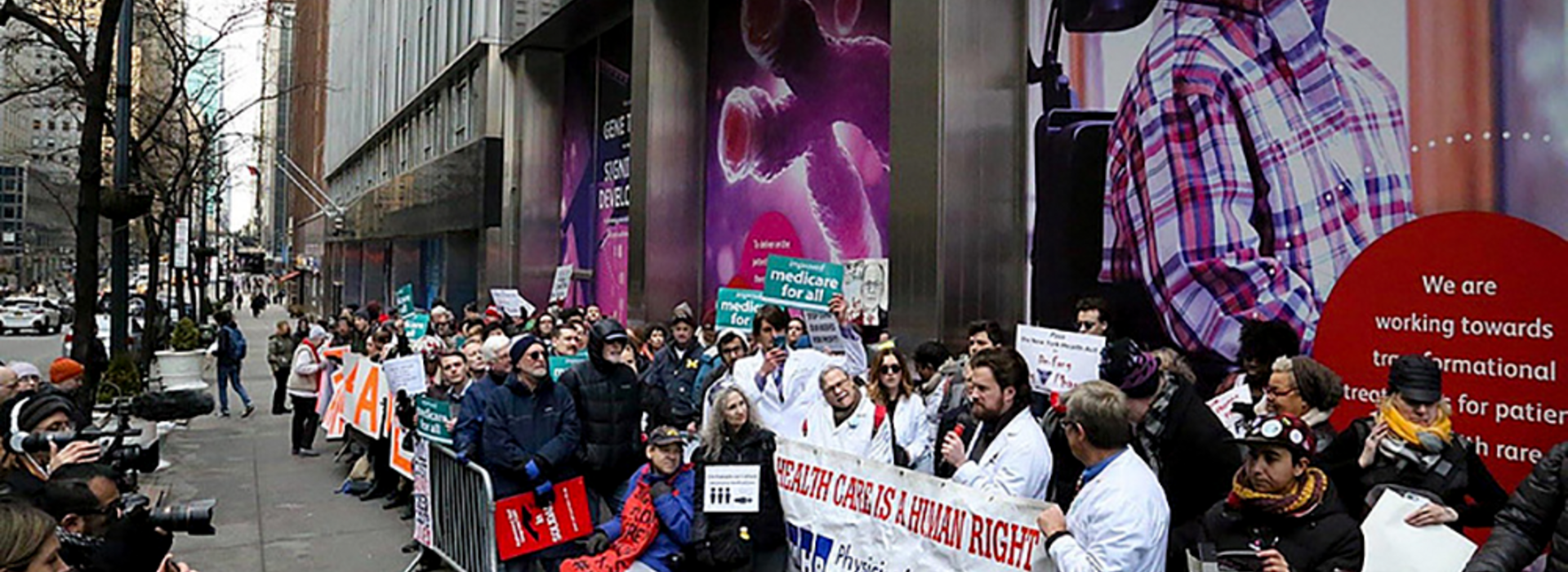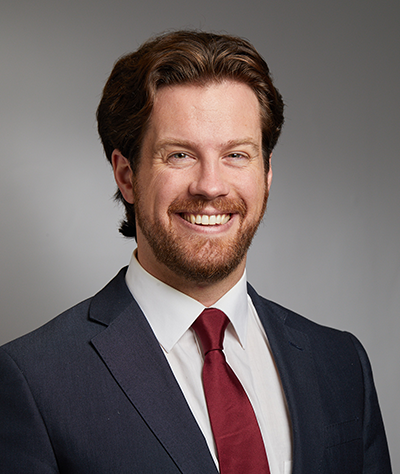
Dr. Augie Lindmark ’19 Combines Science with Activism, Humanities
Haiti. Uganda. Minneapolis. Chicago. Augie Lindmark ’19 , MD, has traveled extensively. He has seen the global effects of medical systems affected by colonialism and the stigma of disease. He has witnessed inequality and communities deeply scarred by history and policy that were meant to help, not hinder.
“Health is a product of systems,” Dr. Lindmark said. “Some of those systems exist inside the body, but the majority of them do not.”

Currently, Dr. Lindmark is a resident physician with the Yale Primary Care program at Yale New Haven Hospital. During this time when COVID-19 is at the top of physician minds and experiences, Dr. Lindmark recognizes that there were barriers in existence before the world knew about the virus. In its wake, new barriers surfaced while old ones were exacerbated.
“COVID-19 made it even more clear that patients want security when it comes to health. Unfortunately, the U.S. health system rarely provides this to patients,” he said. “Whether it was massive medical bills or uncertainty about insurance coverage for testing—even after two acts of Congress tried to mandate full coverage of testing and treatment—our health system's response to this pandemic was a nightmare. When this is over, we'll face a choice: do we prop up a tragically inequitable health system or do we finally invest in the notion that health is a human right?”
Medical school wasn’t always in the books for him. After college, Dr. Lindmark traded books for a bicycle and joined The Ride Against AIDS, where he and other student activists biked over 4,000 miles from San Francisco to Boston. Over the course of 67 days, the group organized and advocated for sustained global funding mechanisms to end the HIV/AIDS epidemic.
“The history of HIV taught the world that small groups of good humans are capable of powerful progress. I suppose that’s how I approach the practice of medicine,” he said.
By combining science with activism and humanities, Dr. Lindmark has found a way to passionately pursue an important horizon. He seeks to weave answers and healing in places where policies have hurt local health systems. While at the University of Minnesota Medical School, Dr. Lindmark completed an Oryema Fellowship in Social Medicine, where he taught classes on organizing and movement building to health professional students in Minneapolis, Uganda and Rwanda.
“Students are often told to be advocates but given very few useful tools. If medicine is serious about health equity, then clinicians must learn how to organize,” he said.
Throughout his medical experience, Dr. Lindmark points back toward his first two years at the University of Minnesota Medical School, Duluth Campus as a place in academic medicine that created incredible bonds between students and faculty. “One person in particular, Dr. Jim Boulger, had a subtle way of instilling confidence in the students he guided,” he said. “I often think about his expansive mentorship that helped me discern a path in medicine. But, I think that’s also the communal culture of the Duluth campus to support, challenge and accompany medical students as the next generation of physicians.”
As the U.S. is witnessing an uptick of virus cases in numerous cities and towns, physicians are truly aware of the numbers as they treat patients every hour who are COVID-19 positive. “The degrees of separation between yourself and someone affected by COVID-19 is only going to get smaller. This pandemic has done a very good job at revealing how individualism is a folly public health response. There's no escaping the fact that we're all in this together. There is also something egalitarian about wearing a mask. It's a quiet statement that says I am protecting myself, and I am protecting my neighbors.”
As a frontline health worker during this pandemic, Dr. Lindmark has experienced days where every patient has had COVID-19 and knows that patients could become very sick at any given time. “My days have been filled with phone calls to patients’ families, and it becomes exhausting when you want to give good news but that isn’t possible,” he said. “At the end of the day you find your colleagues and a therapist to debrief and process. And then, you go back to work.”